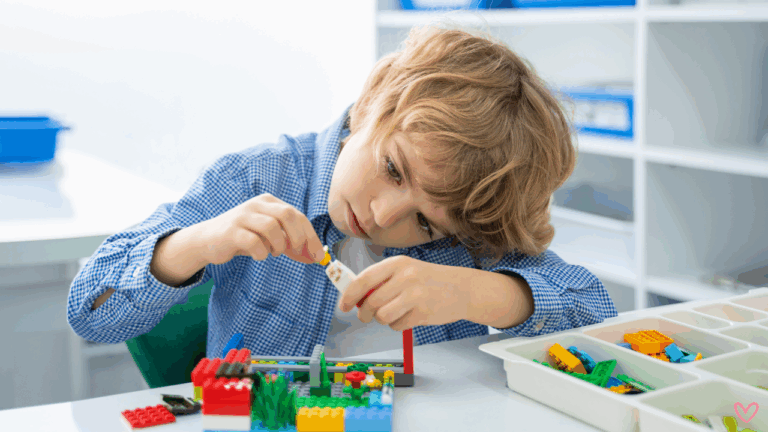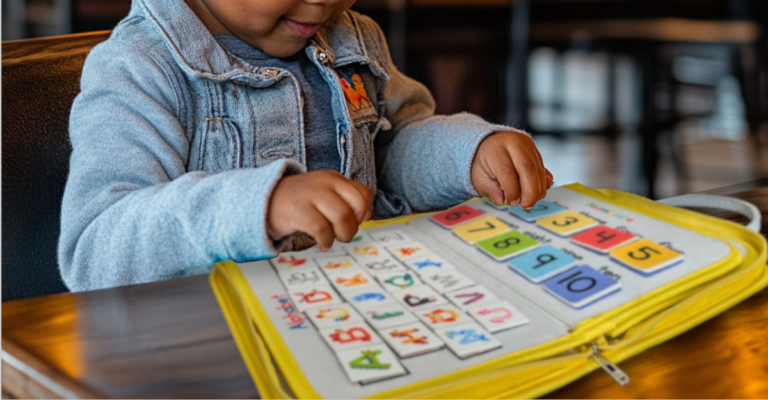As parents, we want the best for our children’s development. One educational philosophy that has stood the test of time is the Montessori Method, founded by Dr. Maria Montessori over a century ago. Known for its child-centered approach, Montessori encourages independence, creativity, and critical thinking. Below are ten key Montessori principles that every parent should understand and incorporate into their parenting practices.
-
Respect for the Child
At the heart of the Montessori approach is the respect for children as capable, competent individuals. Montessori believes in treating children with dignity and valuing their opinions, abilities, and choices. This fosters self-esteem and encourages them to take ownership of their learning journey.
Benefit: When children feel respected, they develop confidence, are more likely to take initiative, and are motivated to learn.
-
Learning Through Play

Montessori emphasizes the importance of play in learning. Rather than sitting in traditional classrooms, children engage in hands-on activities that allow them to explore, experiment, and discover at their own pace.
Benefit: This method promotes deep engagement and fosters curiosity, allowing children to connect learning with real-world experiences.
-
Prepared Environment
A key principle in Montessori is creating a carefully designed environment that supports independence and exploration. The space should be orderly, accessible, and filled with purposeful materials that children can use to learn.
Benefit: A well-prepared environment enables children to feel in control of their space, fosters responsibility, and allows for freedom within limits.

-
Freedom with Responsibility

In Montessori, children are given the freedom to choose their activities, but this freedom comes with the responsibility to follow through. They can make decisions about what to work on, when, and how long to spend on it.
Benefit: This encourages decision-making, problem-solving, and self-discipline, all of which are essential for lifelong success.
-
Intrinsic Motivation
Montessori focuses on cultivating intrinsic motivation, where children are motivated by a genuine love of learning rather than external rewards like grades or prizes.
Benefit: When children are intrinsically motivated, they develop a lasting passion for learning and are more likely to become lifelong learners.
-
Mixed-Age Classrooms

Montessori classrooms often have mixed-age groups, allowing older children to mentor younger ones and reinforcing a sense of community and collaboration.
Benefit: This helps children develop empathy, leadership skills, and social awareness. Younger children benefit from the example of older peers, while older children develop teaching and responsibility skills.
-
Individualized Learning
Montessori education focuses on meeting the individual needs of each child. Teachers observe each child’s strengths and areas for growth, tailoring activities and lessons to suit their development.
Benefit: Children can progress at their own pace, ensuring they are neither rushed nor held back. This personalized approach supports each child’s unique developmental path.
-
Hands-On Learning

Montessori emphasizes hands-on learning through tactile, sensory experiences. Materials are designed to be engaging and allow children to manipulate and explore concepts in a concrete way before moving on to abstract thinking.
Benefit: This experiential learning helps children understand complex concepts, boosts problem-solving abilities, and strengthens fine motor skills.
-
Cultivation of Concentration
The Montessori method fosters deep concentration and focus by allowing children to work on activities without interruption. In Montessori classrooms, children are encouraged to work independently on tasks for extended periods.
Benefit: This helps children build the ability to concentrate and focus on tasks, an important skill for academic success and personal growth.
-
Emphasis on Practical Life Skills

Practical life activities are a cornerstone of Montessori. These include tasks such as cleaning, cooking, dressing, and other everyday activities that help children become independent and confident in managing their own lives.
Benefit: Practical life skills build independence, responsibility, and fine motor skills, all while helping children develop a sense of competence and self-reliance.
Incorporating Montessori Principles at Home
You don’t need to be in a Montessori school to embrace these principles. As a parent, you can create a Montessori-inspired environment at home by offering opportunities for independence, choosing developmentally appropriate activities, and respecting your child’s autonomy. Whether it’s through play,





